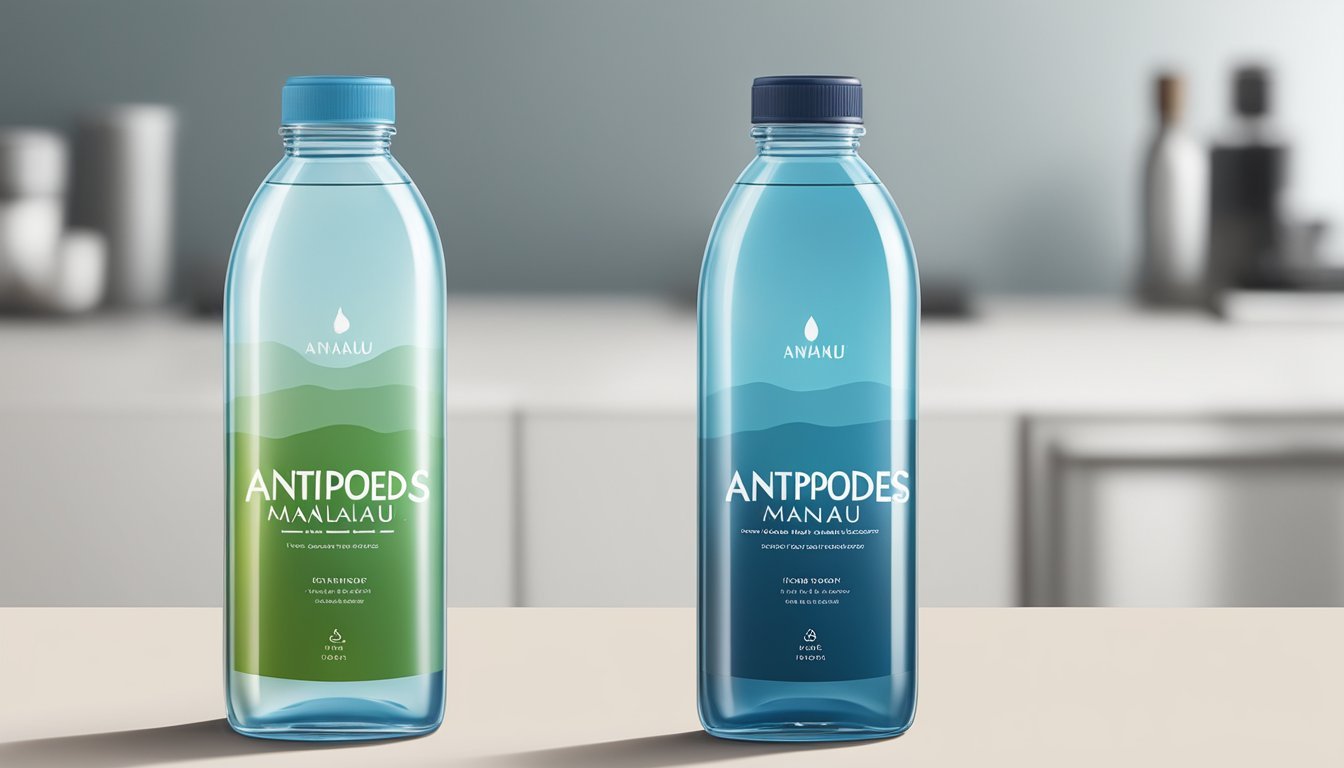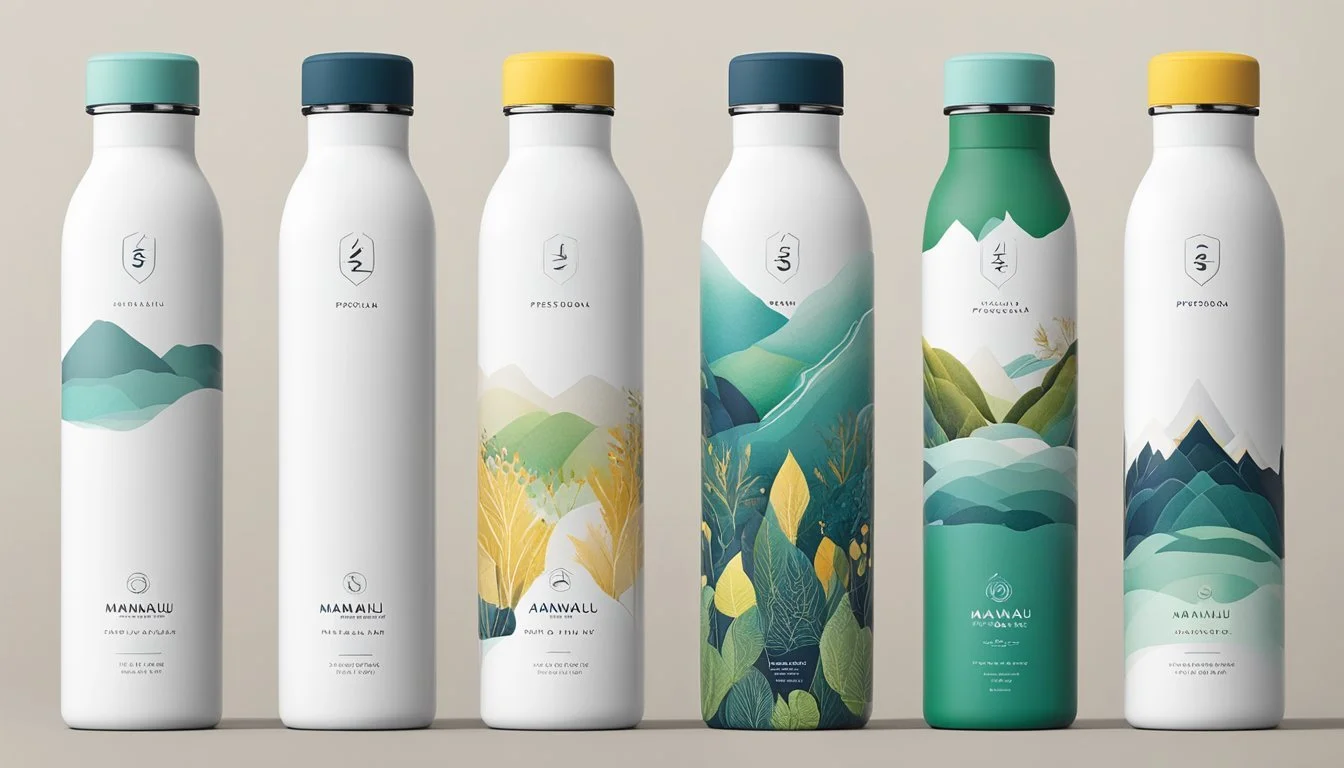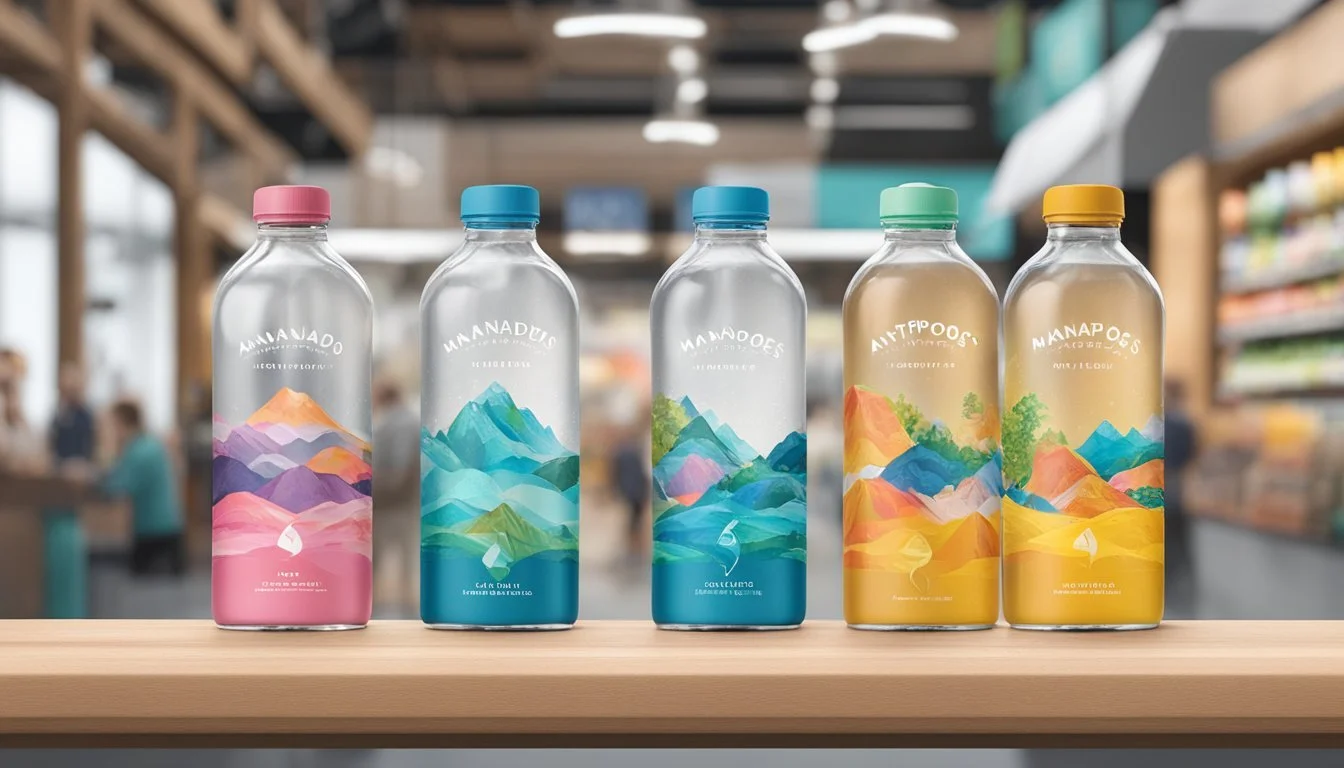Antipodes vs. Mananalu
Comparing Quality and Taste
When choosing bottled water, discerning consumers often weigh factors such as taste, purity, and sustainability. Antipodes and Mananalu are two brands that stand out in this competitive market. For those who prioritize environmental sustainability, Mananalu's use of 100 percent recyclable aluminum cans offers a compelling alternative to traditional plastic bottles.
Antipodes, hailing from New Zealand, prides itself on natural purity and a crisp, clean taste that appeals to many. This brand's commitment to sourcing water from artesian aquifers ensures a pristine product. If superior taste and natural origin are your primary concerns, Antipodes may be the better choice.
Both brands offer unique benefits that cater to different priorities. Whether it's Mananalu's eco-friendly mission spearheaded by Jason Momoa or Antipodes's focus on natural artesian water, consumers are sure to find a suitable option.
Brand Overview
Antipodes and Mananalu both offer unique approaches to bottled water with a strong emphasis on sustainability. Each brand has distinct characteristics related to their origin, packaging, and mission.
Antipodes Profile
Antipodes originates from New Zealand, known for its pristine natural environments. This brand sources its water from a deep natural spring, ensuring pure and natural spring water. The water undergoes minimal processing to maintain its original purity and flavor.
The brand prioritizes sustainability by using glass bottles and eco-friendly practices in their production process. They emphasize reducing their carbon footprint and protecting the environment. Antipodes promotes sustainable practices by being carbon neutral certified and focusing on minimal environmental impact.
Mananalu Profile
Mananalu, founded by actor Jason Momoa, hails from Hawaii. The brand's mission centers on eliminating single-use plastics by offering purified water in 100% recyclable aluminum bottles. This innovative packaging choice aligns with their sustainability mission.
The water is purified to ensure a clean and refreshing taste. Mananalu partners with organizations to support environmental causes and promote sustainable living. They also prioritize educating consumers about the benefits of using alternatives to plastic, aiming to make a positive impact on the planet.
Environmental Impact
Antipodes and Mananalu each have unique approaches to minimizing their environmental impact. They differ in their choice of bottle materials, carbon footprint considerations, and water sources, influencing their overall sustainability.
Bottle Materials and Sustainability
Mananalu uses aluminum cans for its water packaging. Aluminum is infinitely recyclable, meaning it can be recycled repeatedly without loss of quality. This makes Mananalu's approach more sustainable compared to single-use plastics. By using aluminum, Mananalu aims to reduce plastic waste significantly.
Antipodes utilizes glass bottles. Glass is also highly recyclable and does not degrade through recycling. Both materials are better than plastic in terms of sustainability, but aluminum is often seen as more recyclable due to higher recovery rates in recycling systems.
Carbon Footprint Considerations
Mananalu strives to be carbon neutral. The company offsets its carbon emissions through various initiatives. Additionally, their partnership with rePurpose Global helps remove plastic waste from oceans, balancing its environmental impact.
Antipodes's glass bottles are heavier, leading to more carbon emissions during transportation. However, the company aims to source locally for its markets to mitigate this. Both companies are committed to reducing their carbon footprints, but the weight and transport efficiency give Mananalu a slight edge in this regard.
Water Source and Ecosystem
Mananalu sources its water from municipal supplies, ensuring it meets health standards but not without impacting the local water table. This method reduces the environmental strain compared to over-exploiting natural resources.
Antipodes offers natural spring water sourced from pristine environments. This can have a lower impact on ecosystems if managed sustainably. Their sourcing practices aim to ensure that they do not negatively affect the local groundwater or ecosystems. Both companies prioritize responsible management to maintain the health of natural water sources.
In choosing between Antipodes and Mananalu, consumers should consider these aspects to determine which aligns more closely with their environmental values.
Product Quality and Composition
Antipodes and Mananalu offer distinct qualities in their bottled water products, focusing on aspects like mineral content, taste, and purification processes.
Mineral Content and Health Benefits
Antipodes is renowned for its balanced mineral composition, including calcium, magnesium, and a moderate sodium content. These minerals contribute to health benefits such as improved hydration and bone health.
Mananalu, on the other hand, is purified water with a focus on being free from contaminants. It does not naturally contain minerals but may have added electrolytes for enhanced hydration.
Brand Calcium Magnesium Sodium Electrolytes Antipodes Yes Yes Moderate Naturally present Mananalu No No Low Added
Taste Profile
The taste of Antipodes is characterized by its natural mineral content, offering a crisp and slightly sweet flavor. This makes it a favorite among water sommeliers and consumers who prefer a natural taste profile.
Mananalu, being purified water, has a neutral taste. The absence of minerals gives it a clean and simple flavor. This appeals to those who prefer the purity and simplicity of unadulterated water.
Purification and Filtration Processes
Antipodes is sourced from deep aquifers, naturally filtered through layers of rock. This natural filtration process ensures the preservation of beneficial minerals while maintaining high purity.
Mananalu utilizes a rigorous purification process that includes reverse osmosis and advanced filtration technologies like Hydro-7. This method removes impurities and ensures the water is exceptionally clean, aligning with their mission to provide pure and sustainable hydration.
These contrasting purification methods highlight the unique approaches each brand takes to ensure the quality and safety of their water. Antipodes leans on natural processes, while Mananalu employs advanced technology.
Packaging and Design
When comparing Antipodes and Mananalu bottled waters, the packaging and design play a pivotal role. Key aspects include functionality, convenience, and brand visuals.
Functionality and Convenience
Antipodes bottles are made of glass, designed for elegance and durability. Glass is a reusable material, which appeals to eco-conscious consumers. However, its weight and fragility may limit portability.
In contrast, Mananalu uses 100% recyclable aluminum cans. These are lightweight, making them ideal for on-the-go use. Their resealable caps add convenience, allowing consumers to drink at their own pace. The "Drink One, Remove One" initiative emphasizes sustainability by removing single-use plastics from the environment.
Both brands focus on reducing single-use plastics, though Mananalu's aluminum bottles generally offer superior convenience for travel and day-to-day activities.
Visual and Brand Appeal
Antipodes opts for a minimalist design, featuring clear, transparent glass to underscore the purity of the water. Its branding appeals to a premium market, often found in upscale restaurants and hotels. The elegant design enhances its visual appeal on social media platforms like Instagram.
Mananalu, founded by Jason Momoa, leverages bold and vibrant designs, including limited-edition releases like the "Aquaman and the Lost Kingdom" bottle. This connection to pop culture and environmental activism enhances brand visibility and appeal, especially among younger audiences.
Mananalu's aluminum cans are designed to be striking and contemporary, resonating with consumers who prioritize sustainability. Their visual design is not just aesthetically pleasing but also communicates the brand’s mission effectively.
Market Presence
Antipodes and Mananalu are both prominent bottled water brands with distinct approaches to sustainability and consumer outreach. Their market presence is influenced by consumer awareness and retail availability.
Consumer Awareness and Perceptions
Mananalu, founded by actor Jason Momoa, leverages its strong celebrity endorsement to boost consumer awareness. Its mission to eliminate single-use plastics resonates with environmentally conscious consumers.
Antipodes, on the other hand, builds its brand on premium water quality sourced from New Zealand aquifers. This brand is recognized for its purity and has a dedicated following among health-focused individuals.
Both brands benefit from their unique selling points, with Mananalu's environmental mission aligning with the growing emphasis on sustainability and Antipodes's luxury appeal attracting a niche market segment.
Retail Availability and Pricing
Mananalu is widely available at major grocery chains like Whole Foods, Safeway, and Sprouts Market, in addition to being easily accessible online via Amazon and the brand's website. This widespread availability makes it convenient for a diverse range of consumers.
Antipodes, while also present in various high-end grocery stores and online platforms, tends to be positioned in gourmet or specialty food stores due to its premium pricing.
Price-wise, Mananalu is positioned as a mid-range option, making it more accessible to the general public. In contrast, Antipodes's pricing reflects its high-end market positioning, catering primarily to consumers willing to pay a premium for quality and sustainability.
Their retail strategies reflect their brand identities, with Mananalu focusing on widespread accessibility and Antipodes targeting a more select, discerning customer base.
Community and Social Responsibility
Mananalu and Antipodes share a commitment to environmental sustainability and community engagement. Their initiatives and partnerships highlight different approaches to making a positive impact.
Charitable Initiatives
Mananalu: Founded by Jason Momoa, Mananalu is dedicated to reducing ocean-bound plastic waste. For every bottle purchased, the company removes an equivalent amount of plastic through a partnership with rePurpose Global. This initiative has already saved the equivalent of 15 million plastic bottles from the ocean, aligning with their sustainability mission.
Antipodes: Antipodes focuses on supporting local communities in New Zealand. They partner with various environmental organizations to fund conservation initiatives. Additionally, a portion of their proceeds goes to clean water access projects in underdeveloped regions. This approach emphasizes both global and local environmental responsibility.
Partnerships and Endorsements
Mananalu: Mananalu has garnered significant endorsements, including a collaboration with Hawaiian Airlines, which offers their water on flights to reduce plastic use. Another notable partnership is with the World Surf League, amplifying their message of sustainability and plastic reduction among ocean enthusiasts.
Antipodes: Antipodes collaborates with luxury hotels and high-end restaurants, promoting their water as a premium product with a sustainable ethos. They also partner with environmental NGOs to enhance their impact on water conservation and plastic reduction.
By comparing their community and social responsibility efforts, it’s clear that both brands prioritize sustainability, albeit through different strategies and impactful partnerships.
Comparison Summary and Conclusion
Antipodes and Mananalu both offer enticing options, though they cater to different priorities.
Taste:
Antipodes: Known for its crisp, pure taste, Antipodes is often praised for its refreshingly smooth profile.
Mananalu: Offers a clean, mineral-infused flavor, appealing to those who prefer a slightly more robust taste.
Sustainability:
Antipodes: Bottled in glass, promoting reusability and reducing plastic waste, Antipodes emphasizes eco-friendly packaging.
Mananalu: Uses 100% recyclable aluminum cans, aiming to eliminate single-use plastics with their commitment to sustainability.
Consumer Choice:
Antipodes: Typically attracts customers seeking premium taste and glass packaging.
Mananalu: Attracts environmentally conscious consumers who prioritize reducing plastic waste.
Here's a quick comparison:
Feature Antipodes Mananalu Taste Smooth, crisp, and pure Clean, mineral-infused Sustainability Glass bottles 100% recyclable aluminum cans Consumer Choice Premium seekers, glass packaging fans Eco-conscious, plastic waste reducers
Both Antipodes and Mananalu offer unique benefits, making them strong contenders in their own right. Choosing between these brands depends largely on personal taste preferences and environmental priorities.







